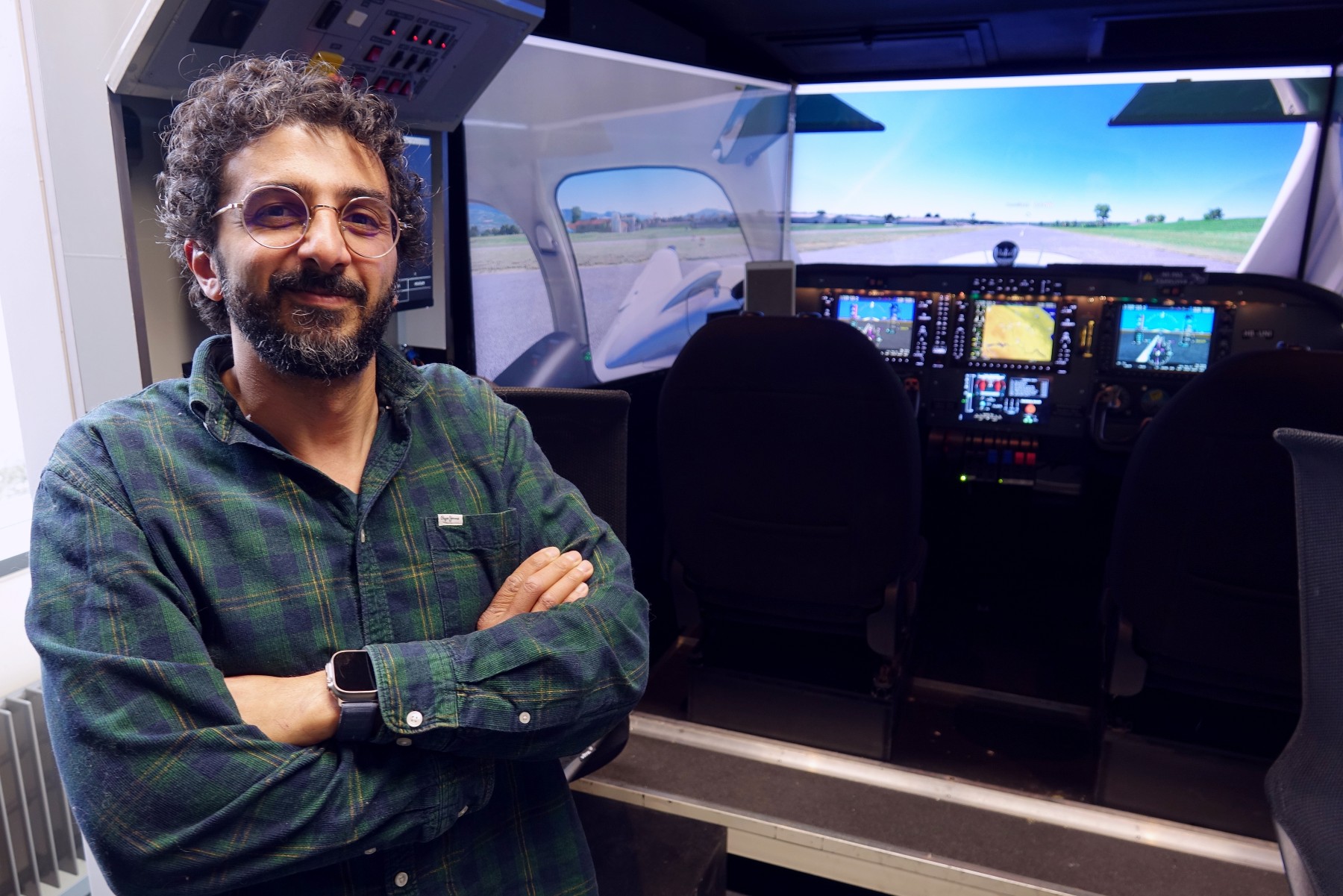Samy Rima in front of the flight simulator, part of the upcoming Mindcraft technology platform at the University of Fribourg.

“Neuroscience-related technologies generate such massive amounts of data today that it’s become impossible to process them using conventional methods. We needed to create a program that brings together the best of both worlds: an understanding of the brain and mastery of digital tools,” explains Dr. Samy Rima, coordinator of the Master’s program in Digital Neuroscience at the University of Fribourg. Launched in 2021, this unique program in Switzerland combines neuroscience, psychology, artificial intelligence, and human-computer interaction. The goal: to train a new generation of specialists capable of deciphering brain mechanisms at every level—from neuron to society—using digital tools.
This interdisciplinary approach is reflected not only in the coursework but also in research and innovation projects. Starting in their second year, students are invited to imagine, prototype, and test their ideas. To support them, the University will soon launch a dedicated technology platform called Mindcraft, a collaborative space equipped with simulators, neurophysiological measurement devices, and cutting-edge software tools. “Students need a playground—a place where they can experiment, create, fail, and try again. That’s also where the best ideas are born,” emphasizes Samy Rima.
A springboard for applied innovation
The program also encourages collaboration with the professional world. Several partnerships are already in place, including with Swiss Post, a MedTech company, and developers of virtual reality solutions. Master’s theses are treated as innovation projects: some students pursue academic research, while others focus on algorithm development or behavioral analysis. “We make it clear to them that their thesis should not be just an academic exercise, but a springboard—an opportunity to solve a real problem, meet future partners, or even create a job,” says the coordinator.
With students from Switzerland, India, France and the United Kingdom, the Master’s degree in Digital Neuroscience is already attracting attention far beyond the canton’s borders. Samy Rima is convinced that Fribourg holds real strategic value when it comes to interdisciplinarity. “Our strength lies in offering a program that speaks to scientists, engineers, designers, and entrepreneurs alike. Now it’s up to local businesses to seize this momentum and turn it into real value for the region.”
